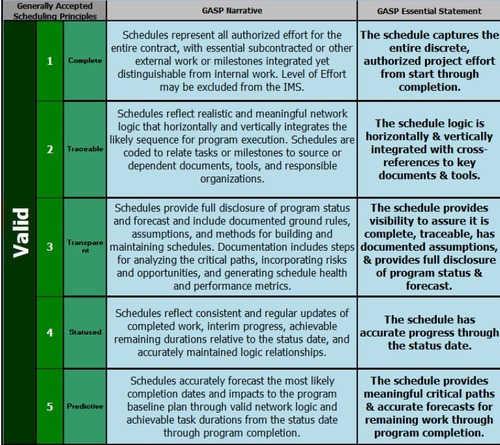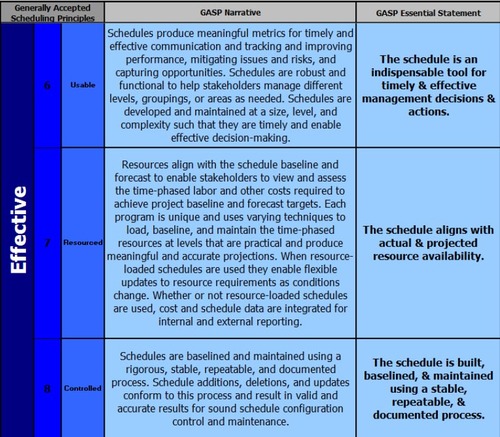GENERALLY ACCEPTED SCHEDULING PRINCIPLES
Generally Accepted Scheduling Principles (GASP)
The Generally Accepted Scheduling Principles (GASP) are
eight overarching tenets for building, maintaining, and using
schedules as effective management tools.
GASP is concise and easily understood, yet set high
expectations for program management teams to develop
and use schedules.
The first five GASP tenets describe the requisite qualities
of a valid schedule; that is, one that provides complete,
reasonable, and credible information based on realistic logic,
durations, and dates. The latter three GASP tenets reflect
increased scheduling maturity that yields an effective schedule.
An effective schedule provides timely and reliable data,
aligns time phased resources and is built and maintained
using controlled and repeatable processes.
GASP serves several purposes. First, they are high
level tenets, or targets, for sound scheduling.
GASP also serves as a validation tool for the program
team or organization to assess schedule maturity or schedule
areas needing improvement. Lastly, GASP can be used
as a governance tool to assess new or different scheduling
approaches with objectivity and detachment.
Achieving a GASP compliant schedule indicates the schedule
is not merely healthy, but fit. A healthy schedule is functional
and meets minimum management purposes, but a fit schedule
is robust and dynamic.
A fit schedule provides the program team with a program
execution roadmap of meaningful progress and realistic
forecasts against a resource loaded performance baseline.
Thus, meeting all eight GASP tenets demonstrates that the
program team builds and maintains the schedule with rigor
and discipline so that the IMS remains a meaningful
management tool from program start through completion.

